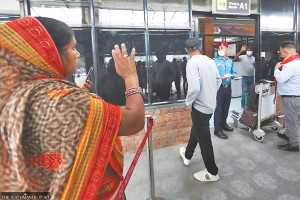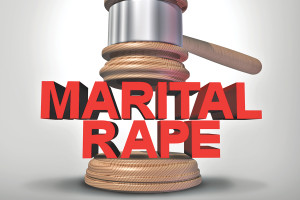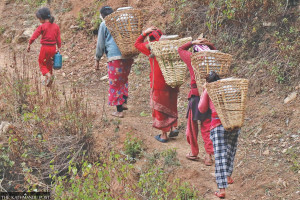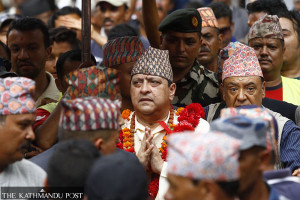 30.12°C Kathmandu
30.12°C KathmanduOpinion
Fire the slowpokes
Nepal must be one of the few countries in the world where victims of armed conflict have been denied justice and reconciliation for more than a decade.
Db Subedi
Nepal must be one of the few countries in the world where victims of armed conflict have been denied justice and reconciliation for more than a decade. The Comprehensive Peace Agreement (CPA), which ended the Maoist conflict, was signed in November 2006. But eight years passed before the Truth and Reconciliation Commission (TRC) and the Commission of Inquiry on Enforced Disappeared Persons (CIEDP) were set up in February 2015. Their two-year mandate was recently extended for another year.
The progress of the TRC has been slow and frustrating to the point where victims doubt they will ever get justice. Its chairman has reportedly been absent for some time. Other accounts suggest that he has been prevented from attending office due to his inadequate loyalty to the prime minister. At the same time, rifts between the commissioners who represent contrasting political ideologies are leading the TRC nowhere when it has received close to 60,000 complaints. The faltering TRC has thrown up two questions: Who makes its policies? And is truth and justice possible under the current power-sharing mechanism?
A theory holds that if rebel groups are included in the peace process, it will ensure power sharing and the exercise will succeed. It is also said that power sharing and political negotiation will make the peace process slow and lengthy. This theory appears to be true in the case of Nepal where the lengthy peace process has been marred by the realpolitik of power sharing. But it is untrue with regard to transitional justice and reconciliation. Nepal’s experience suggests that when perpetrators hold the key to power, truth and justice for conflict victims can be sidelined. This is what is happening currently.
In a bind
Pushpa Kamal Dahal ‘Prachanda’, the supreme commander of the People’s Liberation Army (PLA), has always been powerful since the signing of the CPA. Currently, he is the prime minister of a coalition government backed by his erstwhile enemies, the Nepali Congress (NC) and the Rastriya Prajatantra Party (RPP). Several Maoist hardliners have walked out of the peace process. Softliners led by Prachanda seem to support the idea of the TRC, but it very much appears to be a tactical move. Since coming to power, the Maoists in their new avatar as the Communist Party of Nepal (Maoist Centre) have relentlessly pushed to include amnesty provisions in the TRC Bill. Baburam Bhattarai’s administration attempted to grant a blanket amnesty to alleged perpetrators by bypassing Parliament.
Mid- and lower-level Maoist cadres and PLA fighters say that ultimate accountability for the past violence must be taken by the senior leaders. This means that top-level leaders, not the lower ranks, should be ultimately implicated by the TRC. The Maoists are in a bind because if they favour a free and fair TRC, they risk antagonising their key political constituencies. And if Prachanda concedes to the TRC, he will receive national and international condemnation. Likewise, the NC and the RPP are in a similar fix. They were in power during king Gyanendra’s regime from 2002-06 when engagements between the PLA and the Army escalated sharply. Therefore, a number of NC and RPP leaders are likely to be implicated along with top leaders of the military.
External role
External influence is generally not desirable and, in fact, cannot be celebrated in a peace process as it tends to empower the political elite and disempower victims.
But it may have a role to play when local actors who lead truth and reconciliation are controversial, biased or incapable. Because Western donors have advocated transitional justice over reconciliation and amnesty, they are not only unwelcome but have limited space to engage with successive governments that have sought to emphasise reconciliation and amnesty. In this situation, the international community has sought to engage more with the civil society and the victims and less with the government and the TRC so as to create a vital demand for justice on the ground. This strategy seems to
be working as it has significantly increased mobilisation of victims and internationalised the TRC issue.
India has been involved since the signing of the 12-point agreement which was the basis of the CPA. Recently, however, it has been blamed for micromanaging Nepal’s peace process and this seems to be true to a great extent. India is vying for a permanent seat on the UN Security Council, and it can act as a peace facilitator in the region. However, instead of being a friend for peace, the way India imposed a blockade on Nepal has revealed its confrontational diplomacy and hegemonic attitude. If key political actors in Nepal do not support a free and fair TRC process and, at the same time, do not welcome external engagement, a pertinent question arises. Who can then lead the process in a fair manner?
Way forward
The TRC is embroiled in the politics of power sharing and geopolitics of peace. The way forward looks difficult but not impossible. One, given the political loyalty of the commissioners to their respective political parties and the highly politicised nature of the TRC, very little can be expected from them. The commission should be dissolved on the ground of lack of process. A new TRC consisting of experts from non-political backgrounds should be formed.
Two, the TRC Act must be amended to include a realistic timeframe. International experience shows that there is no way a TRC can process close to 60,000 complaints in two years. It took almost 11 years for the TRC in South Africa to process 21,000 cases. The International Criminal Tribunal for the former Yugoslavia indicted only 161 defendants between 1997 and 2006. Even if the TRC works round the clock in Nepal, it will take at least five years to settle all the complaints. Moreover, the TRC is only responsible for making recommendations regarding amnesty and prosecution to the Ministry of Peace and Reconstruction. This means that the TRC was formed with a minimalist view of truth, justice and reconciliation.
The two points mentioned here depend significantly on the political will of the major parties including the Maoists. If they do not change their political attitude, behaviour and response towards the TRC process, conflict victims, unfortunately, will have to wait for a new political force to emerge to resolve the fiasco. And that may take quite a long time.
Subedi is a lecturer in Peace Studies at the University of New England, Australia







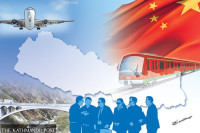

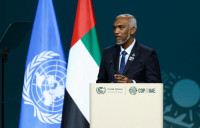

.jpg&w=300&height=200)
